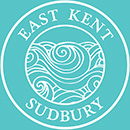Counterwill is a term originally coined by Otto Rank and more recently elaborated on by the fantastic developmental psychologist Dr. Gordan Neufield as ‘the instinctive reaction of a child to resist being controlled’.
It starts in the early stages of development. Anyone who has had children will know what it is like when at around the age of two ‘No’ seems to become quite a regularly used word. I remember quite clearly one day offering my daughter an apple and she looked at me with piercing eyes and shouted back at me ‘NO DADDY, I WANT AN APPLE’.
This is a clear example of counterwill. It’s an automatic response to any sense of coercion, physical or emotional. It’s a completely normal human dynamic and there is a quite brilliant reason for it being there.
Dr. Gordan Neufield uses the analogy of a plant in your garden to describe it beautifully. How are you going to protect this plant from being eaten by rabbits or deer? You could put a fence around it. The plants will is to grow and thrive in it’s conditions. The fence is like the counterwill which surrounds it. It protects the plant from, what can be, the overpowering outside world, so that he can figure out what it is that he needs himself to grow and thrive. This automatic response of our children serves the same purpose. To protect the will. A will means that they are willing to commit to something and persist in the face of problems, difficulties and disappointments. It’s something that comes with maturity and is born out of strong attachments and nurturing.
So really what my daughter was telling me when I offered her the apple was that she needed the space to decide what she wanted. It didn’t matter to her that she wanted the same thing that I was offering. She wasn’t being awkward or defiant. Her message was simple. She needed space to figure out what she wanted. All that resistance that starts to manifest around this age has a purpose. It will continue throughout childhood and is also pretty obvious in the teenage years.
Counterwill is riddled throughout our education system. Children can lose their enthusiasm to learn very quickly and many will operate by just doing as little as possible to get by. It’s very common to take it personally though, or to see the child as trying to manipulate people, procrastinating etc. In fact, some of us may still recognise the automatic reaction of counterwill as adults.
Counterwill at a setting like EKS is understood, valued and even protected intuitively. I see EKS as a bit like this fence for our students. It shuts out all the noise that comes with education, schools and teaching. The children themselves are very much in control of the border of this fence and ready to decide at the their pace what can be let in. And within that border they can practice more ‘being’ activities instead of ‘doing’ activities. The result is a far more authentic experience of what learning actually is for each individual and their own will can mature more organically.
At EKS if you ask the children if they would like an education their reply might be ‘NO, I WANT AN EDUCATION.’
Find out more about counterwill have a look at the Neufeldinstitue website.
